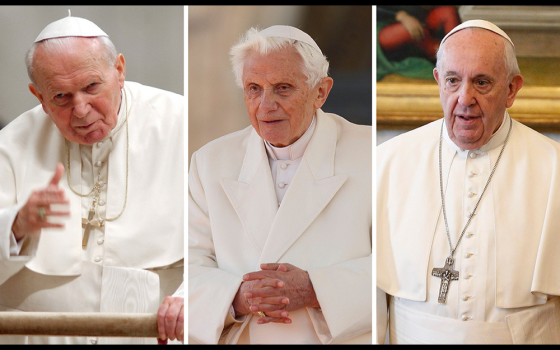Herman Cain’s implausible bid for the White House has come to an end, provoking the best joke of the campaign season so far. Usually, when someone retires from politics, they claim they wish to spend more time with their families. The joke in DC: Cain plans to spend more time with his female subordinates.
Cain’s candidacy never quite seemed like the real thing, from his quoting the lyrics of a Pokemon song to his inability to grasp the implications of Roe v. Wade to his meltdown when asked about Libya. Cain rose in the polls on the strength of his pithy debate performances, which showed nothing more than a well developed ability to deliver platitudes about leadership and decision-making, and his introducing a genuinely new and bold idea, his 9-9-9 plan. The fact that it was a bad idea did not matter so much to GOP primary voters. They did not pay attention to the details. To an electorate tired of politics and gridlock, new ideas are gold.
There is a lesson in this for the rest of the candidates, not least Newt Gingrich, who tends to produce ten new ideas per day, most of the bad, but like Cain’s 9-9-9 plan, ideas that sound new and provocative. Voters who think the country is on the wrong track, which is to say most voters, like ideas that are provocative, that promise to shake up Washington, even if those ideas are fuzzy or ill-conceived. Democrats who think Gingrich is a much easier candidate to beat should think twice about the prospect: Remember the adage to be careful what you wish for.
Take two of Gingrich’s most alarming recent ideas. He said he wants to rollback child labor laws and hire poor children to work as janitors in their schools, so they will learn the value of work. Of course, any historian, especially such a well paid historian, can recall the horrors of child labor that prompted the laws against it we now have. But those laws, adopted by some states previously but only enacted at the federal level in 1938, and the conditions they sought to alleviate, are a distant memory for most voters. Still less do voters recall that it was the unions that led the way in abolishing child labor, not only as a social justice issue on the merits, but in order to raise wages for adult workers. (There were intense divisions with the Catholic hierarchy on the issue with most bishops supporting the National Catholic Welfare Conference, the forerunner of today’s USCCB, position in favor of ending child labor and Cardinal William Henry O’Connell of Boston saying it was none of the government’s business.)
Ending child labor laws is a very bad idea, but I am not sure how it would play out in a debate with President Obama. I can imagine Gingrich scoring points by looking at Obama and asking, “What have you done to help the inner city lately?” Lest we forget, some conservatives like Jack Kemp very effectively addressed urban issues in conservative ways that may or may not have won them any votes among inner city voters, but which certainly softened their image for suburban swing voters.
Gingrich’s second recent “new” idea is to create a path to legalization, but not citizenship, for those immigrants who have been here for a long time and have extensive familial and community ties but who do not have legal status. Another really bad idea when you look at the details, but, interestingly, whereas as Gov. Rick Perry got slammed for defending his support of Texas’ DREAM Act, no one has so far laid a glove on Gingrich effectively for his slight, ever so slight, defection from the “no amnesty” orthodoxy of the GOP base. By raising the issue in terms of keeping families together, Gingrich may have inoculated himself among evangelicals. Would Latino voters see in Gingrich someone who is at least giving voice to their concerns? How would Obama respond? As in the case of anti-poverty efforts in the inner city, Obama is vulnerable to the charge that he has not done much for undocumented workers. Gingrich’s ideas may be bad, but at least he is thinking about the problem.
Politico is reporting that Cain may endorse Gingrich in the next day or two. I do not believe endorsements have much value, except that they would give the former speaker another good press day, adding to the idea that he has all the momentum on his side. Certainly, Cain gets nothing from endorsing Gingrich: If he threw his support to Bachmann or Perry, he might become a part of their brain trust, with access and influence, but Gingrich does not look beyond the mirror for his brain trust. But, a Cain endorsement of Gingrich would show just how fluid politics are this year. Cain, who was once the lobbyist-in-chief for the National Restaurant Association, succeeded in portraying himself as the consummate outsider. Now, he looks to endorse the consummate insider, Gingrich, who is running as the anti-establishment alternative to Romney. And, wouldn’t you want to know if Mrs. Gingrich #1 or Mrs. Gingrich #2 belonged to the same bridge club in Atlanta as Mrs. Cain?
Perceptions are malleable, but they are not indefinitely malleable. I suspect there is a lot more about Gingrich’s money-making that we will learn in the next few weeks, and that much of what we learn will be repulsive. We know about the ties to Freddie Mac and the health care industry but I am waiting to learn about any Wall Street connections. Gingrich could, if past is prescient, self-immolate at any moment. But, I do not, like some Democrats, relish the chance at opposing him next November. In many ways, he would be a far more formidable candidate than Romney.


